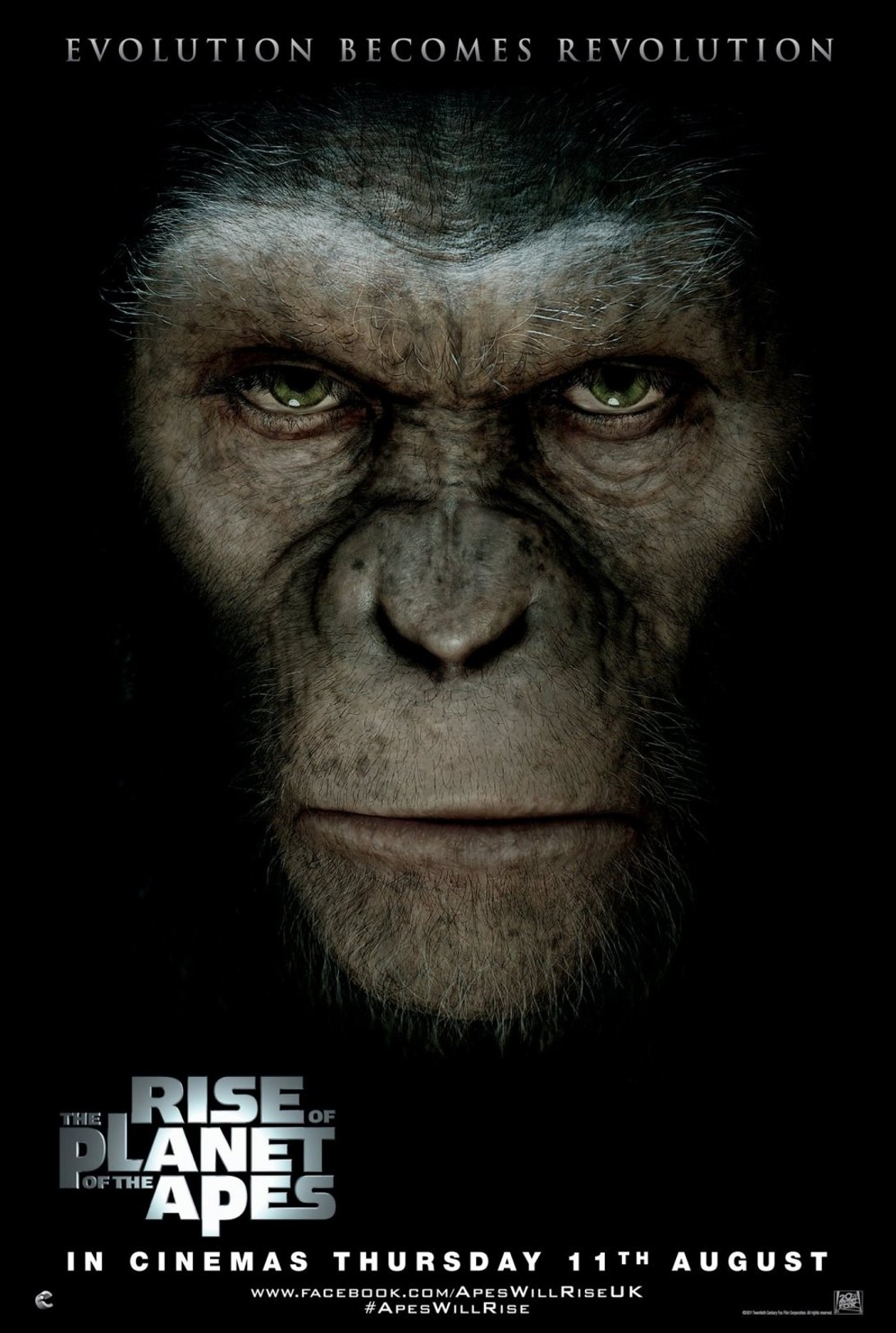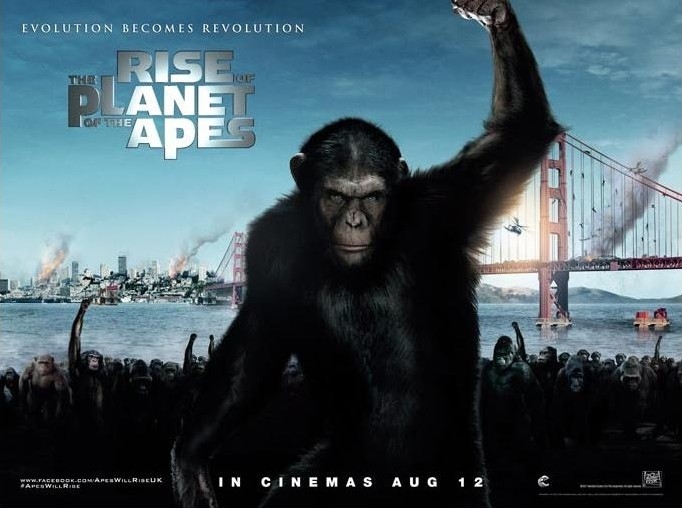
RISE OF THE PLANET OF THE APES (2011, directed by Rupert Wyatt, 105 minutes, U.S.)
BY DAN BUSKIRK Rise of the Planet of the Apes brings another apocalypse to our late summer, taking a new twist on the still-kicking 43 year-old franchise. A predictable techno-thriller, Rise is aggressively conventional, which is a shame, not just because the original remains such a weird piece of work but because there’s some intriguingly dark details in this new script that never quite get teased out. Written by the team of Amanda Silver and Rick Jaffa (who haven’t seen a script produced since 1997’s supernatural thriller The Relic), Rise serves as a prequel of sorts and explains how apes the raised their intelligence yet feels wholly disconnected from the original series, or even Tim Burton’s joyless 2001 reboot. Lacking the sort of satire that was inherent in an alternate world run by apes, this latest re-imagining hopes that the series’ wit can be replaced with the spectacle of CGI apes running rampant.
Built around James Franco’s crusading pharmaceutical scientist Will, it is his new Alzheimer’s drug that has the unexpected side-effect of transforming test chimps into puzzle-solving whizzes. When an experiment with the chimpanzee “Bright Eyes” (one of many references to the 1968 original) goes awry, Will is compelled to bring her chimp infant Caesar home to live with him and his increasingly senile Pop (John Lithgow). Once Will makes the house an ape-friendly playground, the ever-so-cute Caesar begins the sort of wacky hijinks that seems recycled from the Curious George movie. Before long a pesky neighbor ruins the man/ape love fest and Caesar is taken to a primate prison. There, through highly improbable circumstances, he is able to dose his fellow ape prisoners with the test drug and before long the cross-species smack-down is on.
Of course we like Will, because he cares for his dad and takes pity on baby test apes, but in actuality his looseness with scientific protocol not only lets the ape out of the bag but sets loose a deadly plague. Perhaps the script could give Will a moment of guilty revelation at this point but Rupert Wyatt’s direction doesn’t have  time to mull over such troubling ideas. It does take its time getting to the ape rampage though, spending most the film in its generic science labs or in the ape prison, where you know those sadistic guards are going to get theirs. The film introduces the lovely Frieda (Slumdog Millionaire) Pinto as a romantic interest for Franco, but in the world of under-written girlfriend roles, Pinto’s might be the all-time sketchiest.
time to mull over such troubling ideas. It does take its time getting to the ape rampage though, spending most the film in its generic science labs or in the ape prison, where you know those sadistic guards are going to get theirs. The film introduces the lovely Frieda (Slumdog Millionaire) Pinto as a romantic interest for Franco, but in the world of under-written girlfriend roles, Pinto’s might be the all-time sketchiest.
With Andy “Gollum” Serkis as the action-capture basis for lead chimp Caesar, the studio has been hailing the effects as the best CGI yet. I beg to differ. Full-blown computer-generated characters, who interact with the cast in broad daylight still require a suspension of disbelief in the audience but what most spoiled the effects for me was the springy, gravity-defying leaps of the apes. Moving much like the CGI-enabled Spiderman, the apes don’t seem carry the weight of their bodies, jumping impossible lengths and landing with the grace of a creature half their size. It’s a glaring design flaw, reminding us that the apes are not really living by the same laws of physics as the human characters.
The Golden Gate Bridge rampage seen in the trailer is the big action showpiece, but no plot point hinges on their escape, we’re just meant to enjoy the rampage for it’s own sake. Only when a giant gorilla made its slo-mo jump into a hovering helicopter did the film seem to enjoy its own preposterous premise. The sight of the mid-air gorilla raises a smile, yet oddly the imminent extinction of our species doesn’t ask us to shed even a single tear. I suppose Rise’s makers have given up on mankind, except for undiscerning ticket-buyers, presumably.
